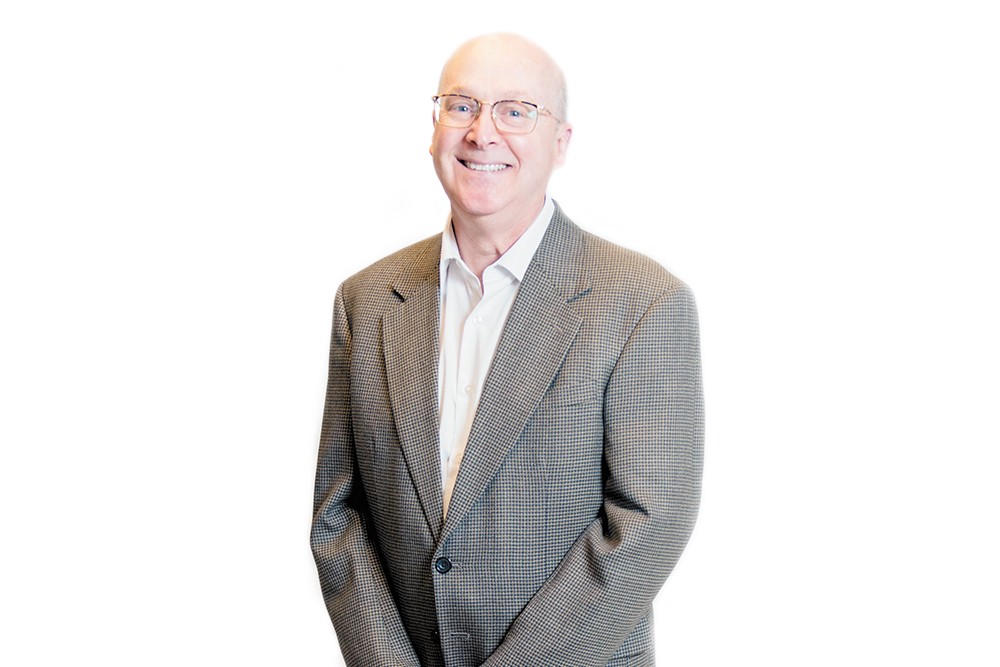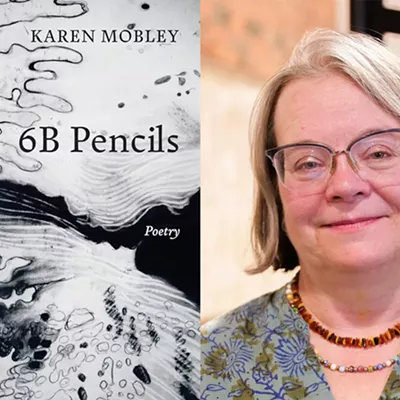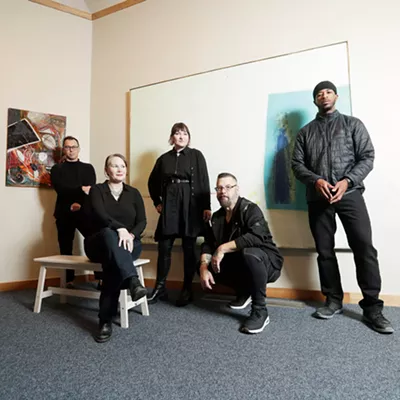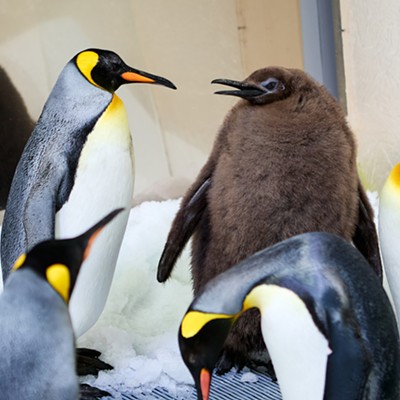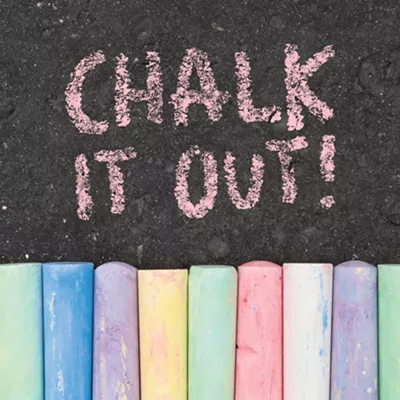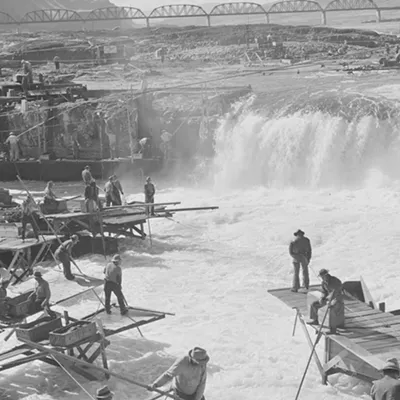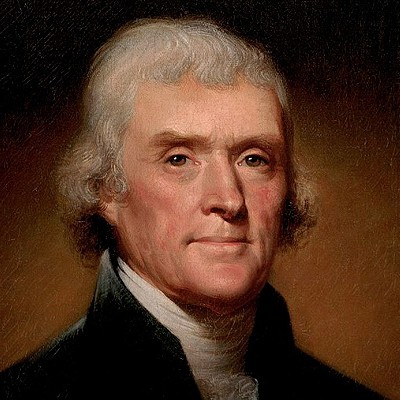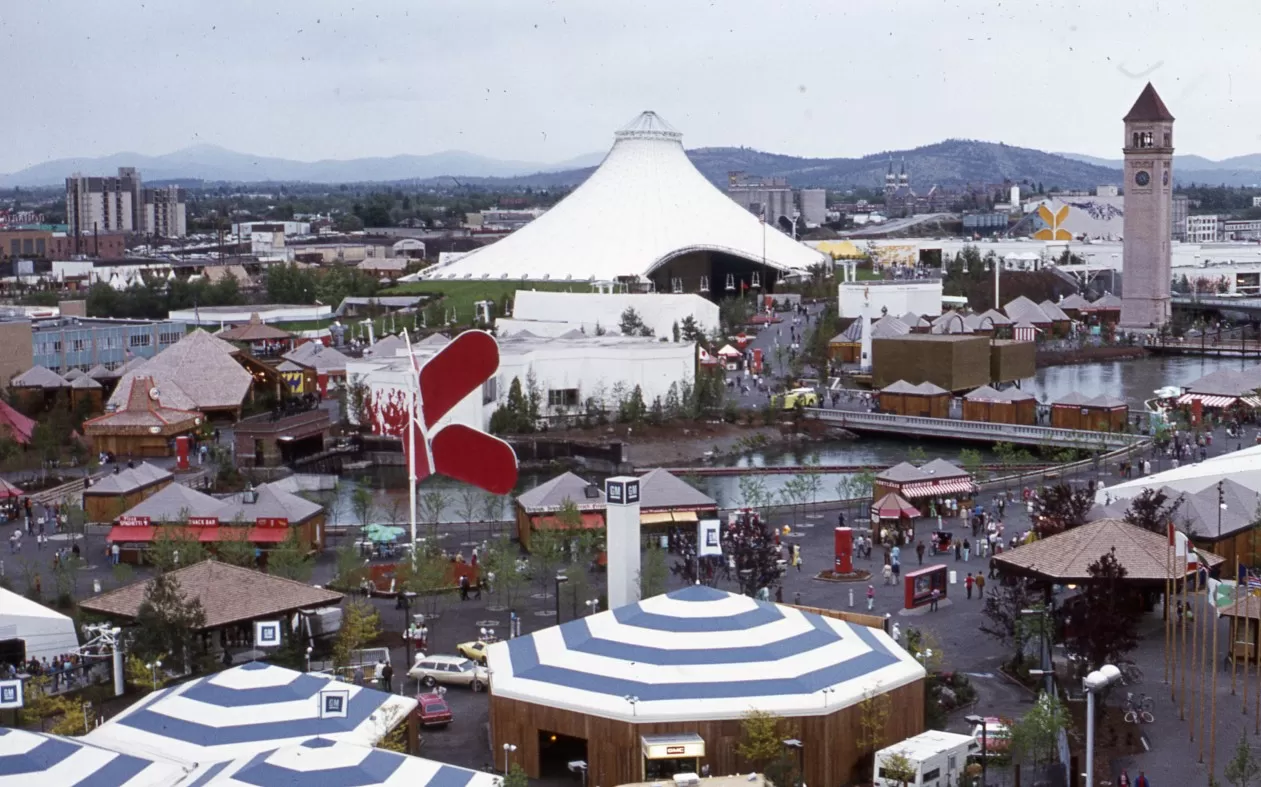"A little bit twisted." After a brief pause, that's how local poet Chris Cook describes his style of verse.
Cook, a familiar face to Spokane's poetry scene, was named the city's poet laureate at the Spokane Arts Awards Gala on Sept. 29. Current Poet Laureate Mark Anderson passes the torch to Cook in early November.
You may already know Cook in a number of different roles in the community: as a trumpet player with the Spokane Symphony (since 1981), a Gonzaga music instructor, the host of poetry open mics at Auntie's and Baby Bar, author of two poetry books (The View from the Broken Mic, Damn Good Cookie) or possibly even as a yo-yo enthusiast. A true Renaissance man.
We spoke to Cook about his poetic style, what the new title means to him and what we can expect during his two-year gig. The responses below have been lightly edited for length and clarity.
INLANDER: What does it mean to be Spokane's poet laureate and what made you apply for the position?
COOK: I think in the past few years I've seen myself obtain more of a servant's heart. I still enjoy getting up on stage and stepping up to a microphone. But I get more out of serving others, helping them find their voice. And I think I realized I've been involved in the poetry scene for 20 years, which is kind of a milestone, and so I thought I'm going to regret it if I don't throw my hat in the ring. I'm also excited to create some events for Spokane where we can encounter poetry and the arts in new and appealing ways. I'm very excited to cross-pollinate the arts so you don't just go to a poetry reading. Maybe there's music, or visual arts, or culinary arts.
What were some of your early musical and literary influences?
I grew up in a musical house. My dad was a clarinetist and he had a really amazing vinyl collection and the best sound system around. We were the last family to get a television because we spent a lot of time listening to classical jazz, folk music, and we always kept books around as well.
There was this really twisted collection of children's poetry called Beastly Boys & Ghastly Girls, it was like cautionary tales that were really gruesome, not acceptable by today's standards, but they stuck with me and I've written some gruesome poetry.
There does seem to be a darker theme in some of your poems.
No doubt [laughing]. No Doubt. But the music tie-in... I am very attuned to the rhythm of words and I enjoy the challenge of structure and rhyme and meter — just like music has a time signature — or phrase length.
My uncle was my childhood hero. He was a professional trumpeter in Boston and an early music specialist and was one of my first teachers. He used to play at family weddings and it raised the hair on the back of my neck. It affected me deeply. Something else that affected me deeply was that he saved his instruments for me and he gave them to me.
Who are you reading today?
I like musicians whose lyrics are poetic. I'm not a big fan of Bob Dylan's poetry. He has a book called Tarantula that I've yet to figure out, but I love his song lyrics. I love Randy Newman, Tom Waits and Ben Folds for their lyrics. In some ways they're a little twisted. They step over the line.
And you like that?
What's not to like by something that doesn't toe the line or play by the rules? I think maybe that's why I enjoy trying new forms. ♦

